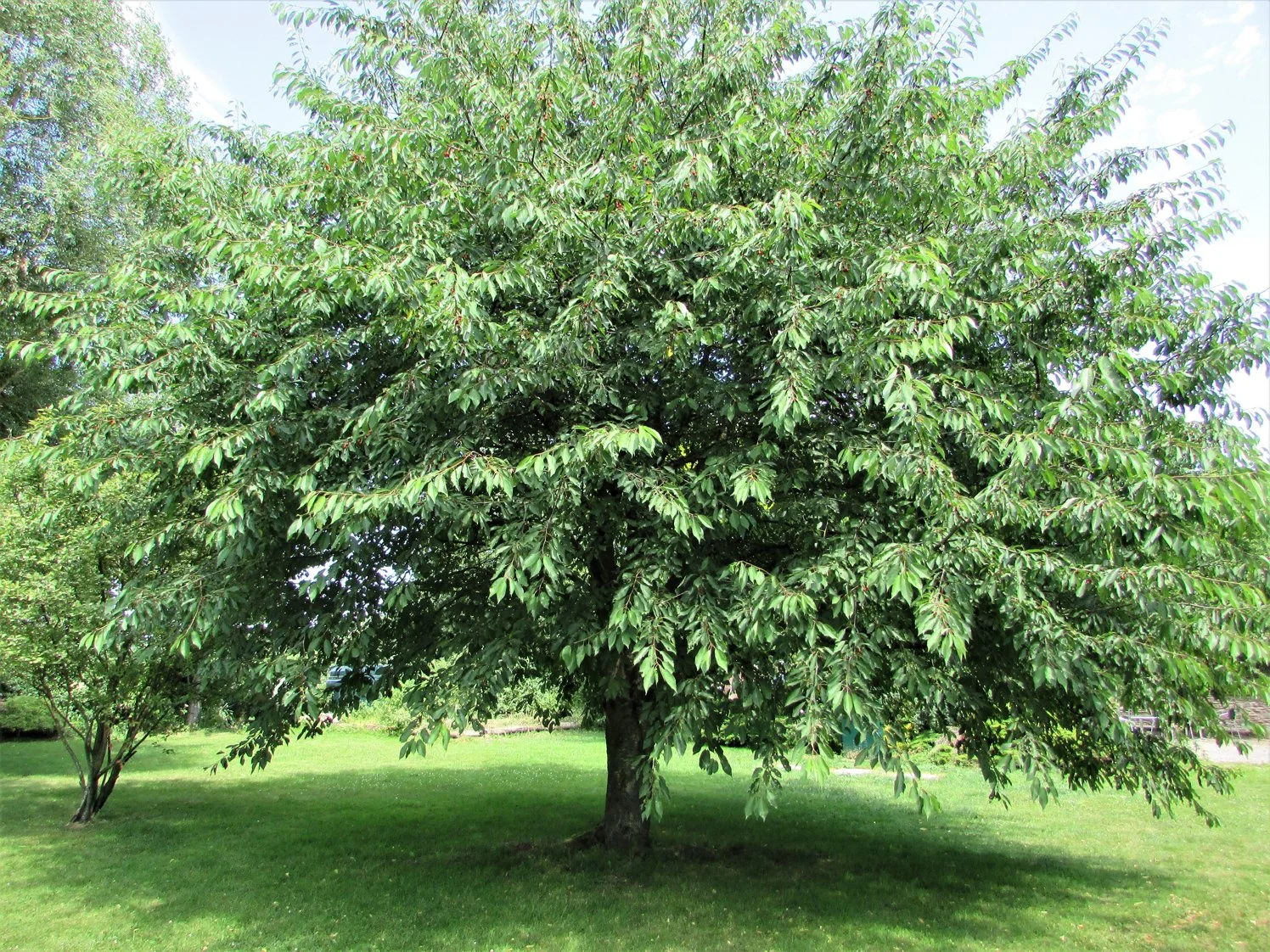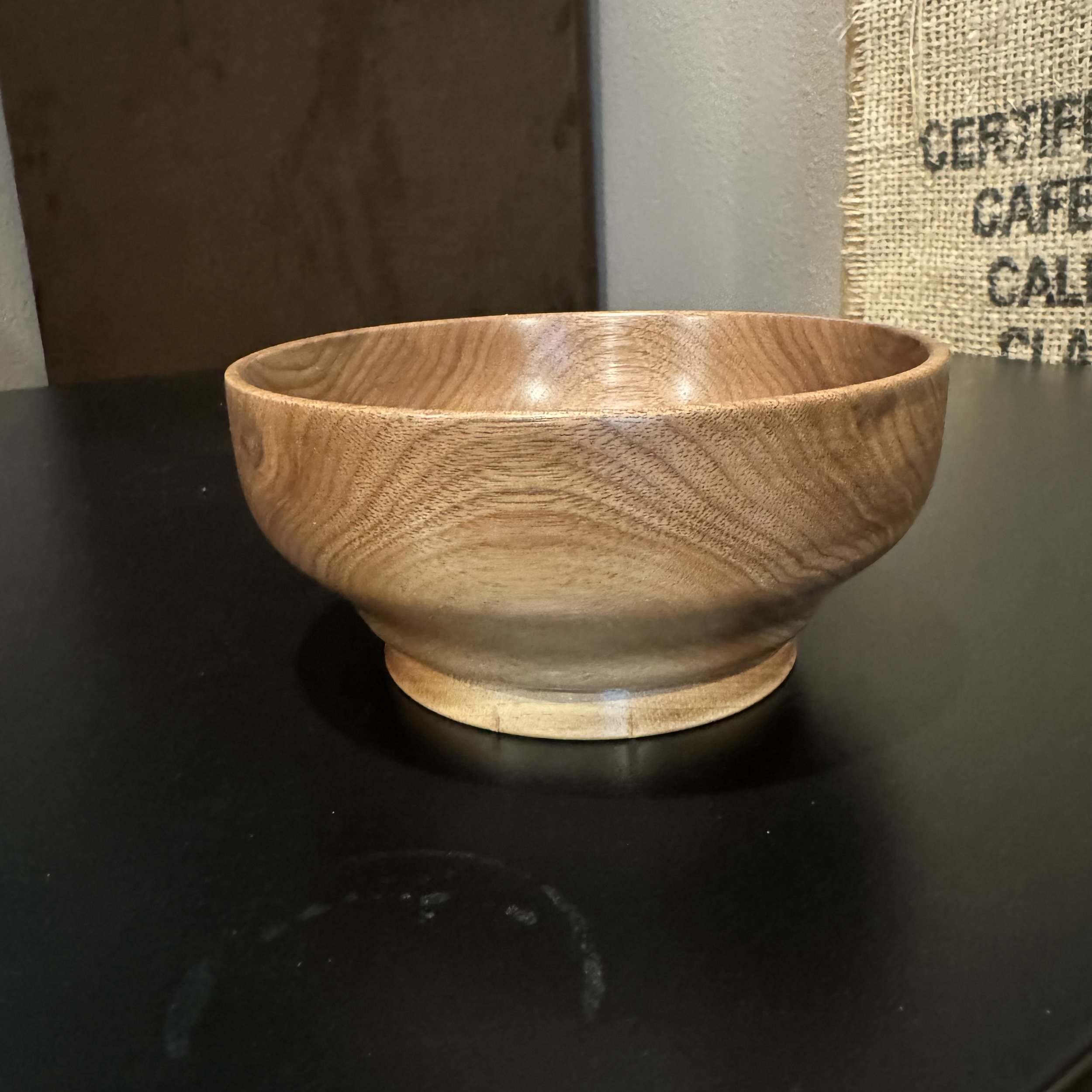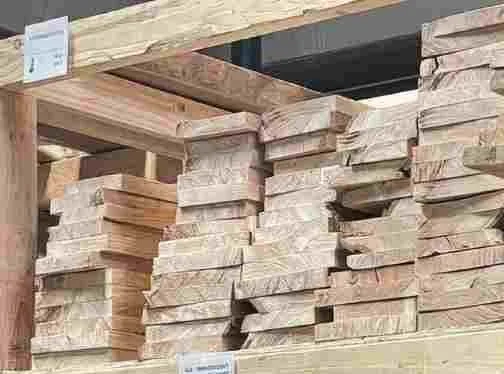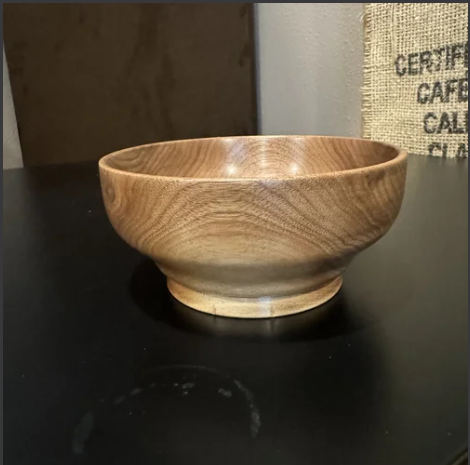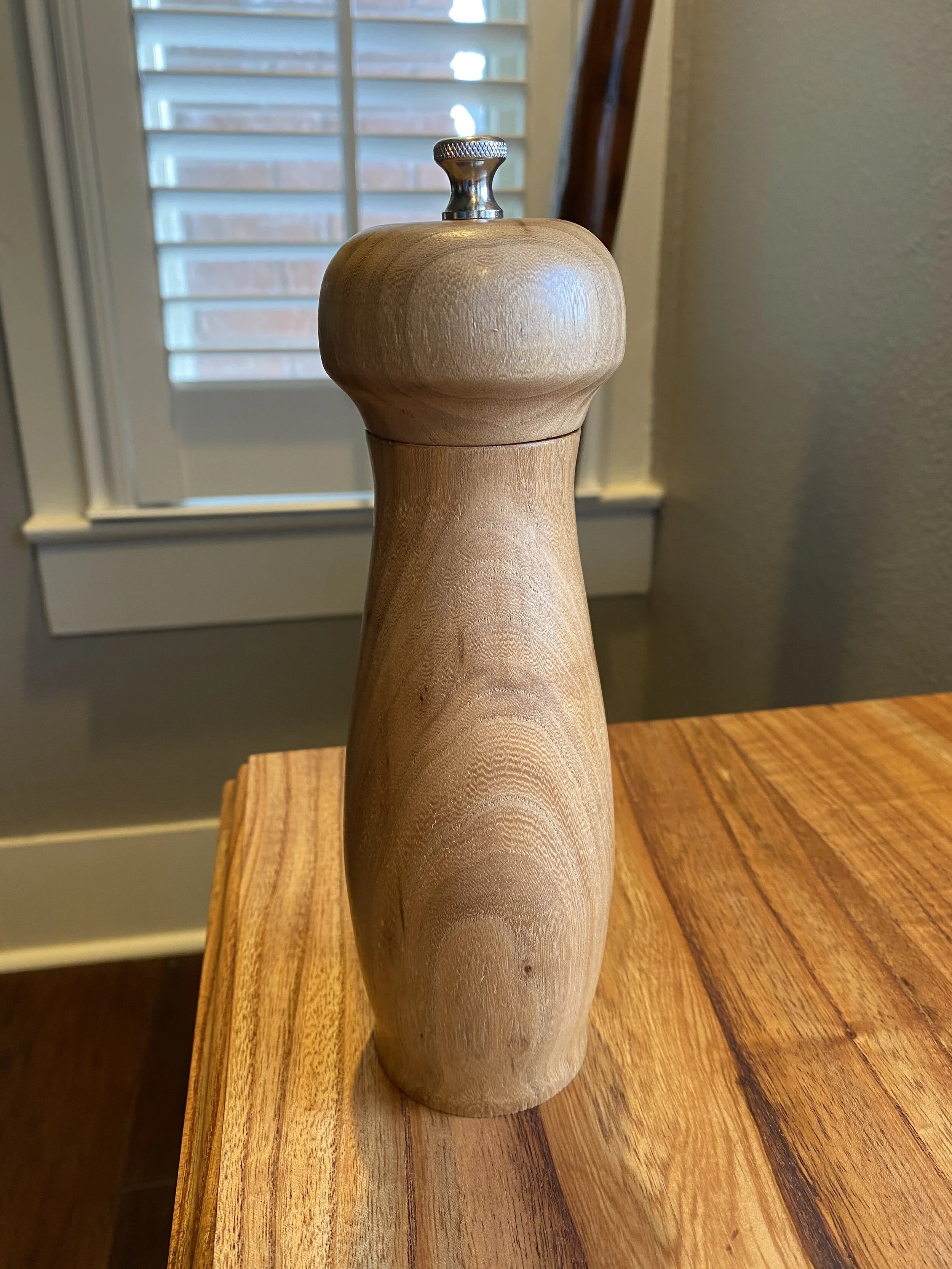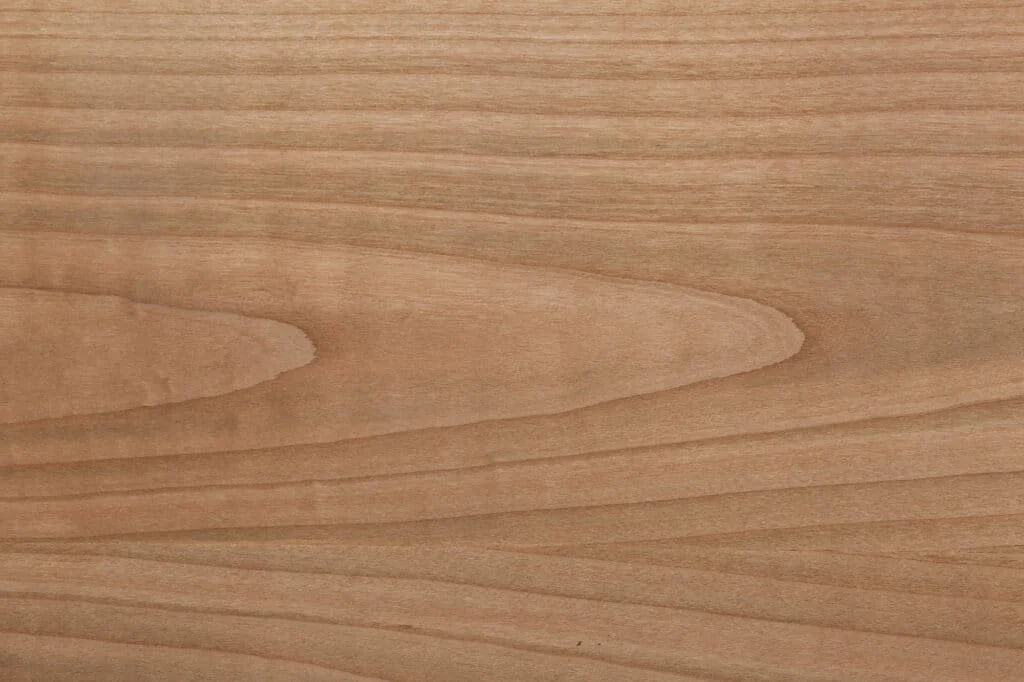
Allen Cherry
From a neighbor’s inventory to the Salt Shaker shop, Allen Cherry begins its next chapter
The Story
When I met Mr. Allen, I found more than a neighbor with a shop full of lumber — I found a craftsman who had spent years saving wood others overlooked. Parkinson’s had taken him out of the shop, but his inventory remained: boards gathered from trades, curbsides, and the patient work of reclaiming what others would discard.
In that collection was Cherry — straight, steady boards with a quiet glow. Cherry is a wood that deepens with time, shifting from pale to warm red-brown as it’s handled and used. These boards carried that promise even as they sat stacked in his shop, waiting.
Bringing Allen Cherry into my shop wasn’t just about saving material. It was about carrying forward the effort of another craftsman whose values mirrored my own — seeing worth where others saw waste, and giving the wood a chance to live on in new hands.
About the Tree
Cherry (Prunus serotina, often called black cherry) is a native hardwood across much of the eastern United States. In the landscape it’s admired for its spring blossoms, its smooth gray bark that darkens with age, and the rich fruit that feeds birds and wildlife.
A mature cherry often stands 50 to 80 feet tall with a straight trunk and a spreading crown, making it as graceful in the yard as it is valuable in the shop. Its heartwood begins a light pinkish tone and gradually deepens into the warm reds and browns that woodworkers prize.
The trees shown here are simply examples of the species — not the exact tree that Mr. Allen’s boards came from.
About the Wood
Cherry is a favorite among woodworkers for the way it changes with time. Freshly milled, its heartwood shows a soft pinkish tone; with age and handling it deepens into warm reds and browns, developing a natural patina that no stain can replicate. Its fine, straight grain planes smooth, takes joinery cleanly, and holds a quiet luster under oil or finish.
The boards I brought from Mr. Allen’s inventory carried all of those hallmarks — steady, workable stock with the promise of color and character that only improves as it’s used. Simple or refined, cherry brings warmth wherever it’s put to work.
Why It Matters
Every board of Allen Cherry carries more than the glow of its grain — it carries the care of Mr. Allen, who spent years collecting and saving good wood. Even when he could no longer work it himself, he kept these boards from being lost, trusting they still had a purpose.
Cherry itself is a reminder of patience. Its color deepens slowly with age, its beauty revealed over time rather than all at once. Paired with the stewardship of a craftsman who believed in holding onto wood worth saving, these boards become more than material — they become a continuation of his effort and a chance for me to carry that story forward.
Made From Allen Cherry
Hand-turned bowl in Allen Cherry — warm grain, reclaimed from Mr. Allen’s inventory — available now.
Allen Cherry pepper mill — handcrafted from Mr. Allen’s reclaimed boards. This one has found a home.
Allen Cherry pieces carry the warmth and story of reclaimed wood. The bowl shown above is linked directly to its product page. You can also explore what else is available in the shop — and if you'd like something created just for you, get in touch and let’s talk about it.

